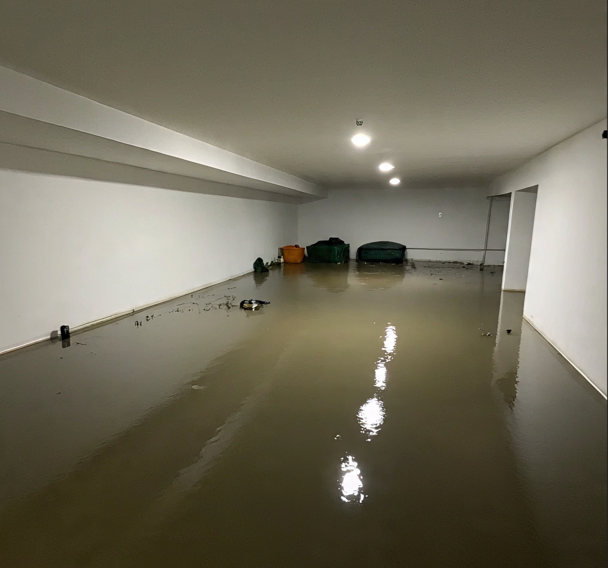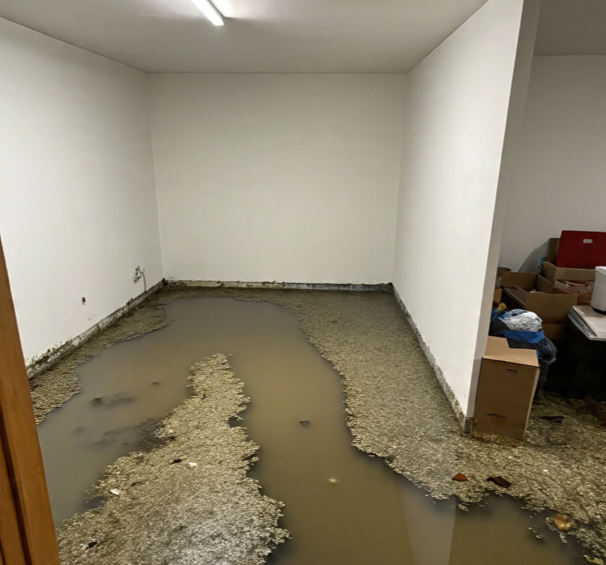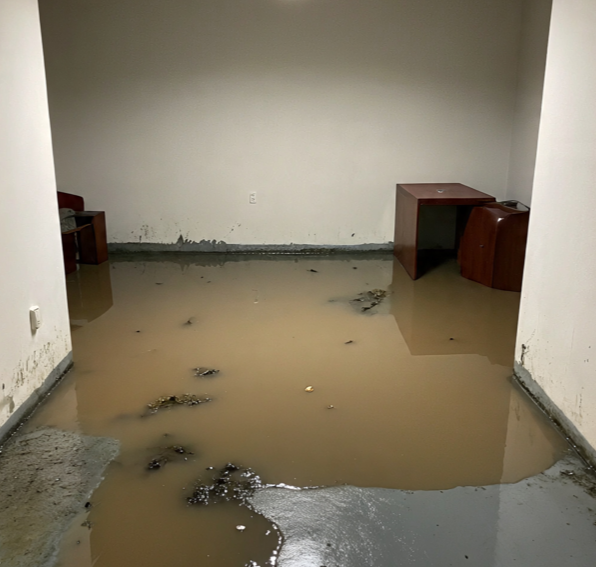Summary:
A flooded basement can go from a small inconvenience to a costly disaster in minutes. Whether it’s from a storm, a broken pipe, or groundwater seepage, taking the right steps immediately can protect your home and your health. This comprehensive guide explains exactly what to do if your basement floods, how to clean it safely, and when to call a professional.

This comprehensive guide explains exactly what to do if your basement floods, how to clean it safely, and when to call a professional.
Jake’s Story: A Lesson Every Homeowner Should Know
Jake had just returned from a weekend camping trip when he stepped into his basement and heard the squish. Water was ankle-deep. His storage bins floated like little boats, cardboard boxes were soaked through, and the smell of damp drywall filled the air.

He rushed to grab towels, a mop, and a bucket, working for hours trying to get the water out. But after two days, the real problem began: mold started spreading along the baseboards, and the drywall bubbled with moisture.
Jake called a contractor, only to learn that his DIY cleanup missed water trapped behind the walls and under the flooring. The repairs cost over $12,000 more than his homeowner’s insurance was willing to cover.
Jake learned the hard way that a fast, informed response is the difference between a quick fix and a full renovation.
Why Basement Flooding Is So Dangerous
A flooded basement isn’t just about puddles. It’s about hidden damage, mold growth, and potential health risks. If you don’t respond immediately and properly, you could be facing:
- Structural damage to foundation, flooring, and drywall
- Electrical hazards from submerged outlets or appliances
- Toxic mold growth that can trigger allergies and respiratory issues
- Loss of valuables and irreplaceable items
Time is critical. The first 24–48 hours are your window to take effective action.
For immediate assistance with basement flooding restoration, contact PuroClean Disaster Restoration of West Fort Wayne, Call (260) 263-9788.
PuroClean Disaster Restoration has over 19 years of experience in the basement flooding restoration industry, with over 100 5 Star reviews on Google serving Indianapolis. Click on this link to see it’s online reviews and ratings.
Step-by-Step: What to Do If Your Basement Floods
Step 1: Ensure Your Safety First
Before stepping into any flooded space:
- Shut off power to the basement from the main breaker (especially if water is near outlets or appliances)
- Wear waterproof boots and gloves
- If sewage is present, wear a respirator or leave cleanup to professionals
Voice search tip: “Is it safe to walk in a flooded basement?”
Step 2: Stop the Source
Identify where the water is coming from. Common sources include:
- Heavy rain or storm runoff
- Burst pipes or water heater leaks
- Sump pump failure
- Foundation cracks
Stop the flow if you can (shut off main water valve, etc.) and take pictures of everything for insurance.
Step 3: Remove the Water Quickly
For minor flooding:
- Use a wet/dry vacuum, mop, and bucket
For major flooding:
- Rent a submersible pump or call a water damage restoration professional like PuroClean Disaster Restoration in Indiana at (317) 467-4436
The faster the water is removed, the less long-term damage you’ll face.
Step 4: Dry Everything Thoroughly
Drying is just as important as water removal. Even after the visible water is gone, moisture lingers.
- Set up fans, dehumidifiers, and open windows if weather allows
- Remove wet items like rugs, furniture, and boxes
- Pull up carpeting and padding if saturated
- Remove baseboards and drill holes to ventilate drywall cavities if needed
Step 5: Clean and Disinfect the Area
Flood water can contain bacteria, especially if it’s from outside or a sewer backup.
- Clean all surfaces with a disinfectant (bleach + water solution or commercial cleaner)
- Wash and dry salvageable items
- Toss anything porous (cardboard, insulation, some furniture) if fully soaked
Step 6: Check for Mold
Mold can start growing within 24–48 hours.
- Look for discoloration, musty odors, or fuzzy growth on walls and wood
- Use mold-specific cleaners or consult with a remediation expert
If mold is present, do not paint over it. It must be removed completely.
Step 7: Document and File Insurance Claim
Take detailed photos and keep a list of:
- Damaged items and materials
- Cleanup costs
- Professional service receipts
Call your insurance agent quickly. Most policies don’t cover flooding unless you have specific coverage.
Voice search tip: “Does homeowners insurance cover flooded basement?”
When to Call a Professional Water Damage Restoration Service
Sometimes, DIY just isn’t enough. Call in experts like PuroClean Disaster Restoration if:
- Water covers more than a few inches or rooms
- It includes sewage or storm water
- You see or smell mold
- You want to prevent long-term structural or health issues
Professionals use moisture meters, infrared cameras, commercial-grade dryers, and anti-microbial treatments to ensure full restoration.
How Much Does Basement Water Damage Repair Cost?
The average cost of cleanup and drying ranges from $1,000–$5,000, depending on the extent of damage. Repairs for drywall, flooring, and mold remediation can push costs higher.
Hiring professionals early can often save money by preventing further damage.

FAQs: What to Do If Your Basement Floods
1. How do I get water out of my basement quickly?
Use a wet/dry vacuum for small amounts, or a sump pump for larger flooding. If water is several inches deep or more, calling a professional restoration company is the fastest and safest option.
2. Is it safe to be in a flooded basement?
Not always. If the water is near electrical outlets or appliances, there’s a risk of electric shock. Shut off the power before entering and wear protective gear.
3. What should I throw away after a flood?
Discard items that can absorb water and can’t be disinfected, such as:
- Cardboard boxes
- Wet drywall or insulation
- Carpet padding
- Upholstered furniture with heavy saturation
4. How long does it take for mold to grow in a flooded basement?
Mold can start growing within 24 to 48 hours after water exposure. That’s why fast drying is crucial.
5. What does basement flood water usually contain?
Floodwater can include:
- Groundwater (mud, bacteria)
- Rainwater runoff
- Sewage (toxic waste and pathogens)
- Pipe leaks (clean water)
Water from outside or sewers is considered Category 3 water (black water) and should be handled professionally.
6. How can I prevent future basement floods?
Prevention tips include:
- Install or maintain a sump pump with battery backup
- Grade your yard away from your foundation
- Seal foundation cracks
- Install a backwater valve
- Clean gutters and downspouts
7. Should I call my insurance company before cleaning?
Yes. Take photos first and notify your insurer. Some policies require an adjuster to see the damage before you clean. Keep receipts for all work and purchases.
8. What companies clean flooded basements near me?
Search for licensed and insured water damage restoration companies in your area. If you’re in Indiana, call PuroClean Disaster Restoration at (317) 467-4436. They offer 24/7 emergency service.
9. Can a flooded basement cause permanent damage?
Yes. Water trapped behind walls or under flooring can cause structural damage, mold growth, and weaken your foundation over time if not properly dried and treated.
10. Will my dehumidifier work for a flooded basement?
Small home dehumidifiers help with minor dampness. But for large floods, you’ll need commercial-grade air movers and dehumidifiers used by professionals.
Final Thoughts
A flooded basement can happen suddenly and the damage can last for years if you don’t act fast. Whether the cause is rain, plumbing, or something else, knowing what to do within the first few hours can save you thousands of dollars and your home’s health.
Jake’s story is one many homeowners share. But yours doesn’t have to end the same way. Be proactive, know when to DIY, and know when to call in the pros.
If you’re in Indiana and need help fast, PuroClean Disaster Restoration of West Fort Wayne is ready 24/7 to respond to water emergencies, remove moisture completely, and protect your property from long-term damage.
Need help with water in your basement?
Call PuroClean Disaster Restoration of West Fort Wayne: (260) 263-9788
Emergency Service Available 24/7
 PuroClean Disaster Restoration of West Fort Wayne
PuroClean Disaster Restoration of West Fort Wayne